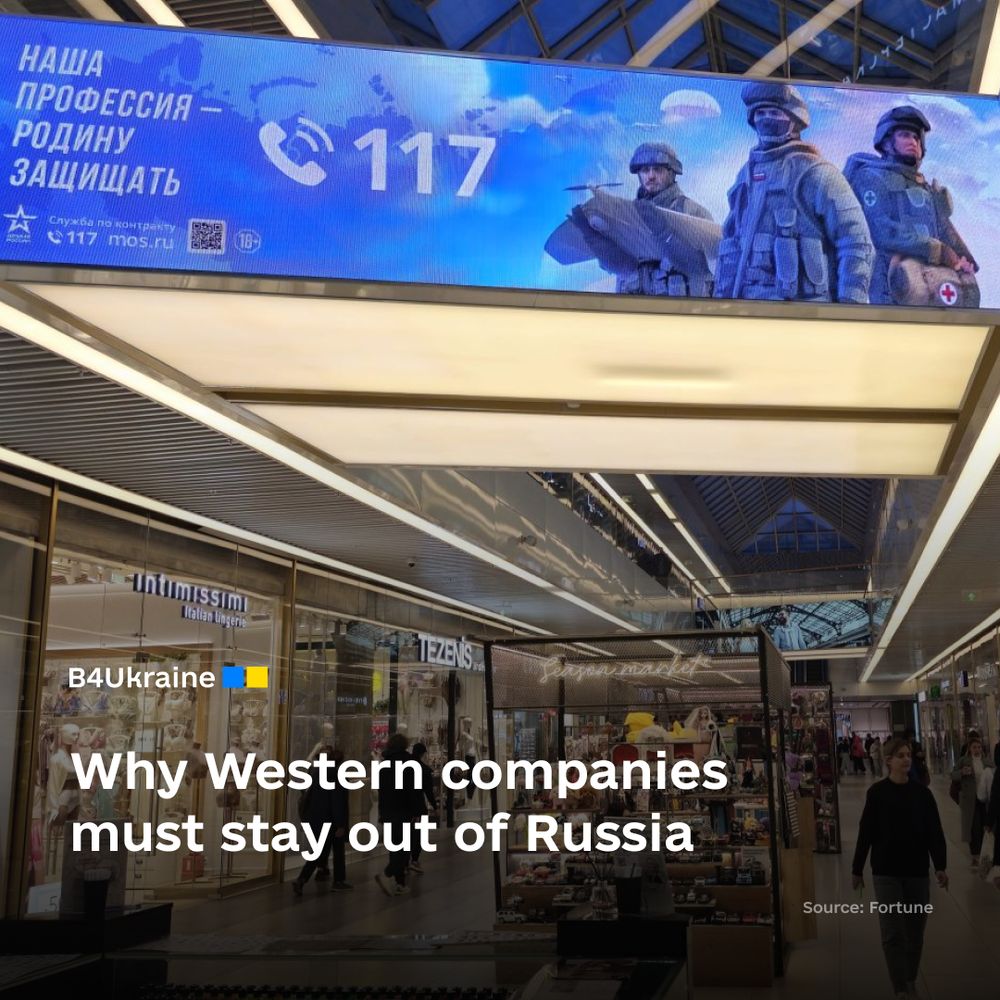
This week marks 1,000 days since Russia’s full-scale invasion of Ukraine began. Over this period, the world has witnessed the extraordinary resilience of Ukraine, driven by its citizens’ determination to safeguard their independent state. At the same time, Russia’s aggressive actions have been starkly exposed: over 35,000 civilian casualties, 3.6 million internally displaced people, 6 million refugees, and nearly 150,000 documented war crimes. This unthinkable but all too real evil has been partly underwritten by the tax payments of the Western corporations, which have chosen to remain in Russia.
Despite widespread calls for divestment, only 440 (or 28%) of the 1,599 companies with Russian subsidiaries at the start of the full-scale invasion have fully severed ties by selling or liquidating assets in Russia. A further 26% have scaled back their Russia operations and announced plans to leave. Nonetheless, the vast majority remained, contributing not only substantial tax revenue— estimated at $20 billion annually—but also material resources and personnel, as required by Russian law.
Early corporate exits included Levi’s, McDonald’s, Starbucks, Whirlpool, Ford, and Sony Music Group. However, the recent exit of British conglomerate Unilever through the sale of assets to Arnest Group shows that divestment is still possible, even amidst Kremlin-imposed obstacles designed to deter a corporate exodus.
Trump’s re-election and his promises to end the war in “one day” could embolden companies to re-enter Russia in anticipation of a settlement imposed on Ukraine. As a global coalition engaged with dozens of multinational corporations since 2022, we view such discussion as dangerously premature—for both moral and practical reasons.
First, the risk of nationalization in Russia remains extremely high. The expropriation of assets from Danone and Carlsberg is just the beginning, as the Kremlin likely plans more corporate seizures to benefit Putin’s allies in retaliation for the use of Russia’s Central Bank assets. Additionally, Russia plans to increase its corporate tax rate next year, aiming to further fund its illegal war against Ukraine. This move will primarily affect businesses outside Russia’s military-industrial complex.
Second, with the mounting evidence of war crimes in Ukraine, companies face rising risks of complicity and potential future reparations. The U.S. government has clearly warned that businesses operating in Russia or occupied territories of Ukraine are at risk of being implicated in violations of international law and human rights abuses. Other key risks mentioned by the US government include exposure to sanctions, export controls, import prohibitions, money laundering and corruption.
Third, the reputational risks of maintaining operations in Russia are substantial. A recent survey conducted in the U.S., Canada, and Australia found that 77% of consumers would stop buying products from companies still active in Russia, and 71% believe those companies should exit. Mondelez International, the maker of Oreo and Philadelphia cream cheese, saw declining sales in the Nordic region after facing a widespread boycott.
Operating in Russia is reckless and will remain so, regardless of whether a new Trump administration claims to secure a swift ceasefire. Companies that have already made the decision to leave must stand firm in their commitments and speak up to encourage peers to withdraw from the Russian market. Any re-entry before Ukraine’s territorial sovereignty is fully restored, war crimes perpetrators are brought to justice, and reparations are addressed will not only tarnish their reputation but also signal corporate complicity in Russia’s ongoing aggression. Instead, businesses should focus on contributing to Ukraine’s recovery—a move that would reflect true corporate responsibility and offer substantial long-term opportunities in a renewed and resilient market.
This article originally appeared on Fortune.com